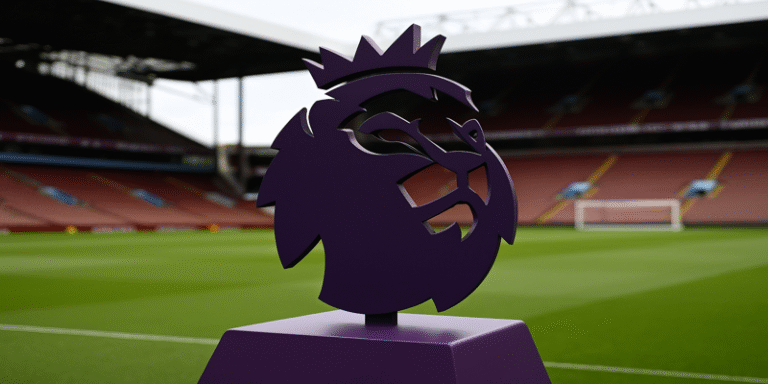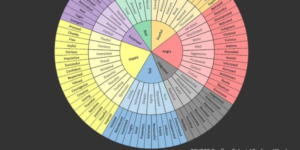The English Premier League (EPL) stands today as more than just a football competition—it has evolved into a cultural, economic, and global powerhouse. Since its inception in 1992, the league has experienced exponential growth in terms of revenue, fanbase, international influence, and social impact. With broadcasting deals that reach more than 200 countries and a cumulative audience measured in billions, the EPL has become the crown jewel of global sports entertainment.
The Origins of the Modern League
The EPL was formed when clubs in the old First Division broke away from the Football League to capitalise on lucrative television rights. This strategic pivot was driven by the need to modernise English football in the wake of several crises in the 1980s—hooliganism, declining stadiums, and the aftermath of the Heysel and Hillsborough disasters (Goldblatt, 2006). The formation of the Premier League allowed clubs to negotiate their own broadcast deals, resulting in a flood of revenue that transformed the sport’s landscape.
The 1992–93 season featured 22 teams and was won by Manchester United. From there, a new era of commercialisation and professionalism emerged, backed by media giants like Sky Sports. This development marked the beginning of football’s transition from a regional game to a global commodity.
The Economics of Success
The financial muscle of the Premier League is among its defining features. According to Deloitte’s Annual Review of Football Finance (2023), the EPL generated over £6 billion in revenue during the 2021–22 season—more than the Bundesliga and La Liga combined. This financial prowess has enabled clubs to attract world-class talent, invest in infrastructure, and develop youth academies.
One of the most pivotal financial catalysts has been the league’s broadcasting rights. The Premier League’s 2022–2025 domestic broadcast deal with Sky, BT Sport, and Amazon Prime was worth approximately £5 billion, with international rights surpassing domestic value for the first time (Premier League, 2022). These deals have not only enriched the clubs but have also enhanced the global visibility of the league.
A Cultural Export
The Premier League is now a cultural ambassador for Britain, exporting not just football, but fashion, language, and lifestyle. Global fandom has led to bars in New York packed for 7 AM matches and supporters’ clubs from Lagos to Kuala Lumpur. The Premier League represents “soft power” in action—a concept defined by Joseph Nye (2004) as the ability of a country to influence others through culture and values rather than coercion.
The EPL’s branding strategy is built on narrative and emotion. Legendary rivalries—such as Arsenal vs Tottenham, the North West Derby between Manchester United and Liverpool, and the recent fierce competition between Manchester City and Liverpool—are marketed like Hollywood storylines, captivating audiences well beyond British shores (Boyle & Haynes, 2009).
Foreign Investment and Ownership
An increasing trend in recent years is foreign ownership of Premier League clubs. Teams like Manchester City, Chelsea, and Newcastle United have experienced transformations under foreign investors, often from the Middle East, Russia, and the United States. This influx of capital has brought success and controversy.
Manchester City, owned by the Abu Dhabi United Group, has won six league titles since 2012, symbolising how foreign investment can deliver sporting and commercial success. Yet critics argue that this raises ethical questions, especially around “sportswashing”—a term used when states use sport to improve their global image, often while deflecting from poor human rights records (Amnesty International, 2021).
Global Talent Pipeline
The Premier League’s diversity is a hallmark of its success. In the 2023–24 season, players from over 65 different nationalities were featured in the EPL (Transfermarkt, 2024). This global talent pipeline has enhanced the competitiveness and entertainment value of the league. It has also created challenges for the development of homegrown players, prompting the Football Association (FA) to advocate for more stringent homegrown player quotas.
Yet, the league’s multiculturalism is also a reflection of globalisation. Fans see their national heroes compete on one of the world’s biggest stages, building identification and loyalty. The EPL is not merely a British league—it is a truly global spectacle.
Technological Innovation and Fan Engagement
The EPL has consistently embraced innovation. From the introduction of goal-line technology to the controversial implementation of the Video Assistant Referee (VAR), technology has reshaped the game. These innovations aim to increase fairness, but they have also sparked debate among fans and pundits (Wright, 2020).
Digital platforms have also revolutionised fan engagement. Clubs now interact with fans through TikTok, Instagram, and Twitter, producing behind-the-scenes content, interviews, and challenges. During the COVID-19 pandemic, digital engagement became the primary mode of interaction, proving the league’s adaptability (McCarthy et al., 2021).
Social Responsibility and Community Impact
Despite its commercial nature, the Premier League has taken steps to address social issues. Campaigns such as “No Room for Racism” and “Heads Up” (a mental health initiative) have raised awareness and shown football’s potential for social influence. Each club is also mandated to operate community programmes targeting education, health, and inclusion (Premier League Charitable Fund, 2023).
This shift is significant in re-establishing football as a tool for social good—a nod to its historical roots as a working-class sport deeply embedded in local communities.
Challenges and the Future
While the EPL appears unstoppable, challenges loom. The financial disparity between EPL clubs and those in smaller leagues threatens the competitive balance of European football. UEFA has proposed reforms, including a new Financial Sustainability system, to prevent a dominance spiral (UEFA, 2023).
Domestically, the cost of matchday tickets, growing influence of agents, and the potential formation of breakaway “super leagues” pose existential threats to the traditional football pyramid.
Additionally, increasing scrutiny around the ethics of club ownership and the sustainability of ever-growing broadcast deals may force the Premier League to adopt stronger governance and transparency measures.
The English Premier League has transcended sport to become a global institution that entertains, inspires, and occasionally divides. Its economic engine, cultural reach, and social impact make it a unique entity in the modern world. Yet, to maintain its leadership position, the EPL must balance commercial ambitions with ethical responsibilities and sustainability.
As the beautiful game continues to evolve, the EPL’s trajectory serves as both a blueprint and a cautionary tale for global sport.
References
Amnesty International (2021). Sportswashing and Human Rights. https://www.amnesty.org/en/latest/research/2021/02/sportswashing/
Boyle, R., & Haynes, R. (2009). Power Play: Sport, the Media and Popular Culture. Edinburgh University Press.
Deloitte (2023). Annual Review of Football Finance 2023. Deloitte Sports Business Group. https://www2.deloitte.com/uk/en/pages/sports/articles/annual-review-of-football-finance.html
Goldblatt, D. (2006). The Ball is Round: A Global History of Football. Penguin Books.
McCarthy, J., Rowe, D., & Wilson, B. (2021). “COVID-19 and the Reimagining of Football Fandom.” International Review for the Sociology of Sport, 56(6), 798–816.
Nye, J. S. (2004). Soft Power: The Means to Success in World Politics. PublicAffairs.
Premier League (2022). Broadcasting Revenue and Strategy. https://www.premierleague.com
Premier League Charitable Fund (2023). Community Projects and Impact. https://www.plcf.com
Transfermarkt (2024). Premier League Player Nationalities 2023–24. https://www.transfermarkt.co.uk
UEFA (2023). Financial Sustainability Regulations Explained. https://www.uefa.com
Wright, T. (2020). VAR: Friend or Foe? The Impact of Technology on Modern Football. Routledge.









